34 million Afghans mired in poverty amid US freeze on assets: UN
The United Nations has warned that around 34 million people in Afghanistan are mired in poverty, as sanctions by the US against the de-facto Taliban government and the freeze on the country's assets have exacerbated the humanitarian crisis there.
In its stark new assessment of 2022 data released on Tuesday, the United Nations Development Programme (UNDP) estimated that the number of people in poverty nearly doubled to 34 million in Afghanistan, well more than a year after the Taliban returned to power and two decades after the group was ousted by a US-led NATO invasion.
The appalling figure is a staggering increase of 15 million in 2020, the last full year of rule by the US-supported government that crumbled in a matter of weeks the following summer by advancing Taliban fighters.
"Some have been compelled to sell their homes, land, or assets that generate income," the UNDP report - titled "Afghanistan Socio-Economic Outlook-2023" said, adding, "Others have resorted to the distressing practice of commodifying their own family members, turning children into laborers and young daughters into brides."
In the absence of contemporary census data for Afghanistan, the UN uses a population estimate of 40 million for the country, meaning that 85 percent of the nation, based on the assessment, is projected to be in poverty.
Since the full collapse of the US-backed government in Kabul and the Taliban takeover in August 2021, vast foreign subsidies were halted and aid programs and financial assistance dramatically cut back as many countries refused to deal with the Taliban authorities.
Afghanistan's heavily aid-dependent economy, mostly funded by international donors, has been in chaos since the Western countries suspended humanitarian aid and froze Afghan assets.
"The cutoff in foreign assistance that previously accounted for almost 70 percent of the government budget, has resulted in a sizable squeeze of public finances," the report's executive summary said.
The administration of US President Joe Biden has frozen over $7 billion in Afghan assets since NATO’s withdrawal from the country. Back in February last year, Washington also said that half of the assets would be made available to victims of the September 11, 2001 attacks.
Nevertheless, the UN claims that it has managed to airlift about 1.8 billion US dollars into Afghanistan - between December 2021 and January 2023 - to pay staff and operating costs, saying that such cash injections have been vital in shoring up the nation's faltering economy.
The world body, however, says that the financial assistance is far from enough and that the minimum for international assistance that is required to help Afghans in need should reach $4.6 billion in 2023.
The UN said that restrictions, particularly the US crippling sanctions on the Taliban, may turn off the aid tap at the source, with donors wary of committing cash to projects that cannot be implemented, warning that any reduction in international aid would deteriorate the economic situation of Afghanistan and would result in extreme poverty that would perpetuate for decades.
“If foreign aid is reduced this year, Afghanistan may fall from the cliff edge into the abyss,” the UNDP resident representative in Afghanistan, Abdallah al-Dardari, said.
Furthermore, many organizations suspended their operations in protest against the December ban on NGOs employing Afghan women.
In December, the Taliban government first decided to suspend university education for women, and later issued an outright ban on education for women.
“Only the full continuity of girls’ education and women’s ability to pursue work and learning can keep the hope of any real progress alive,” UNDP regional director for Asia and the Pacific, Kanni Wignaraja, said.
The US invaded Afghanistan in October 2001 following the September 11, 2001 attacks on the United States. American forces occupied the country for about two decades on the pretext of fighting against the Taliban. But as the US forces left Afghanistan, the Taliban stormed into Kabul, weakened by continued foreign occupation.
Following the 9/11 attacks, the United States invaded and occupied Afghanistan, despite the fact that no Afghan was involved in the attacks. Hundreds of thousands of Afghans died in the US war on the country.
Millions of Afghans are without work today, the banking system is virtually dysfunctional, medical facilities are lying in shambles and the worst humanitarian crisis in modern history is unfolding.
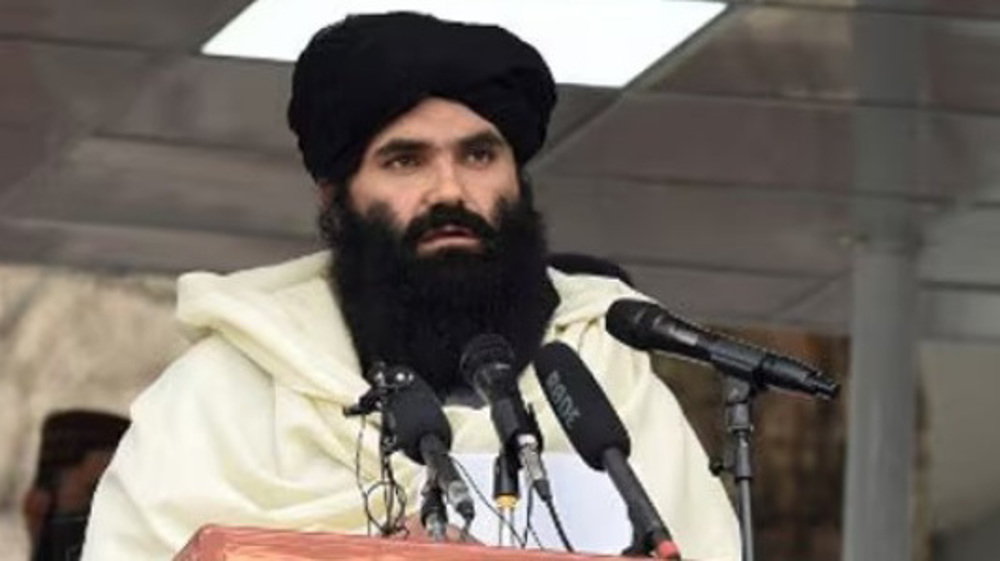
Taliban says US has lifted $10 million reward for information on deputy chief Haqqani
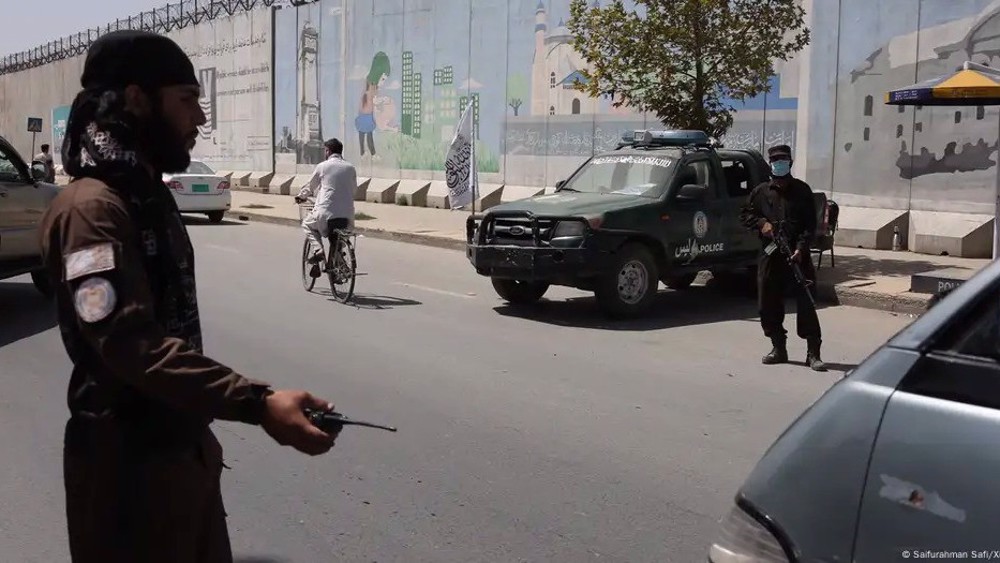
Deadly bombing attack targets Taliban ministry building in Kabul
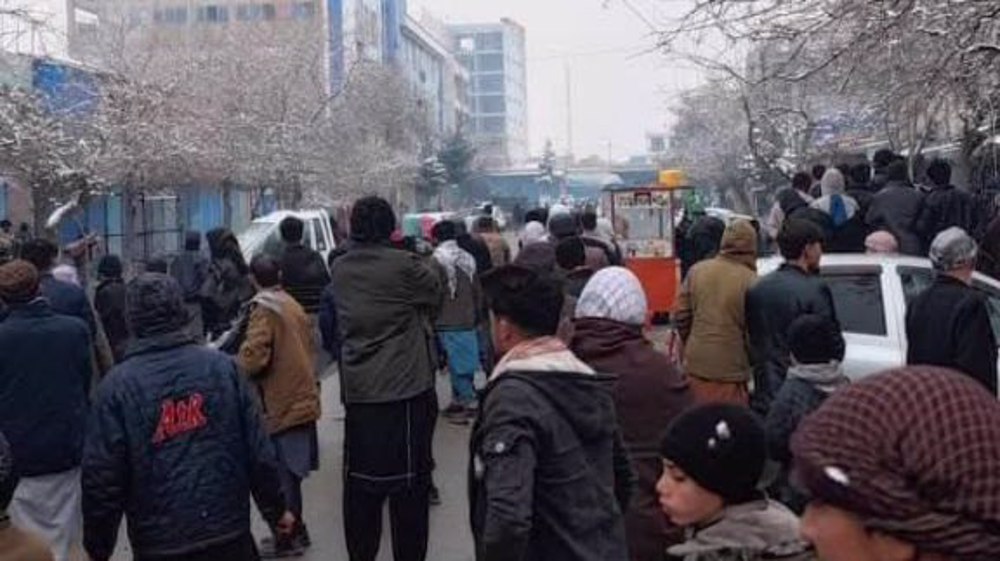
Daesh claims deadly bombing attack in northern Afghanistan
Iran, US conclude negotiations in Oman, agree to continue next week
Iran and US hold indirect talks in Oman
Iraq hopes indirect Iran-US talks lead to regional stability
US rights advocates file lawsuit to halt Trump’s sanctions on ICC prosecutor
Israel waging psychological sabotage campaign against Oman talks: Report
EU youth mental health crisis
VIDEO | New York students protest student deportations
VIDEO | Press TV's News Headlines


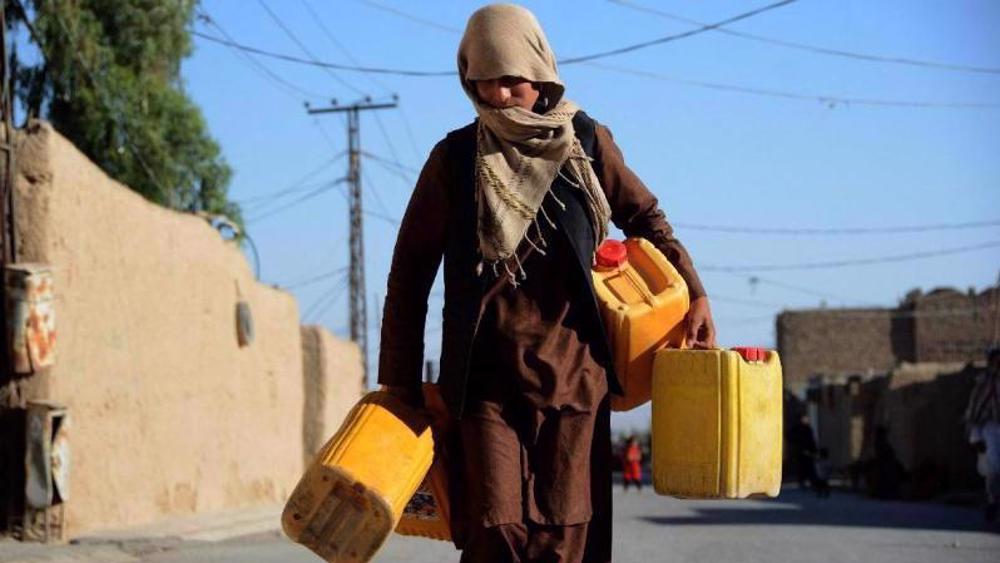
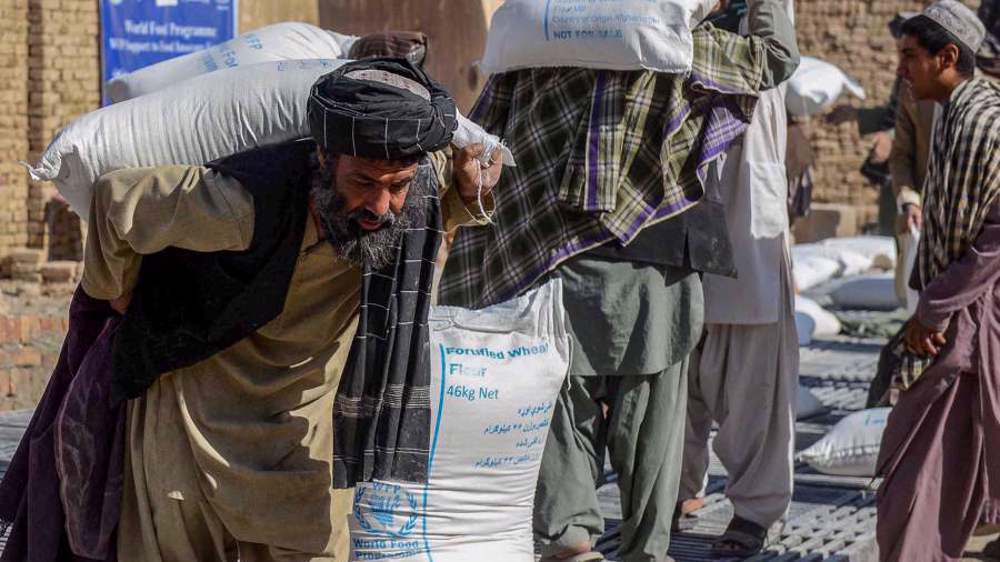
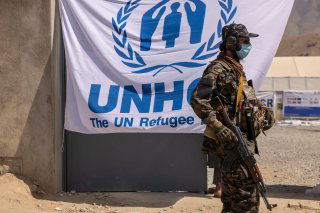




 This makes it easy to access the Press TV website
This makes it easy to access the Press TV website